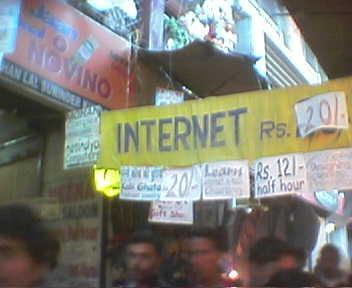The Star Online : TechCentral - Malaysia Technology
Slamming door on porn opens others
BY EDWIN YAPP
PETALING JAYA: The Government's ruling last week that cybercafes nationwide install software for blocking access to online pornography has raised several questions.
There are some who argue that the move is tantamount to censoring the Internet, which goes against the guarantee given by the Government that it would not do such a thing.
Others contend that filtering out porn websites is not censorship.
Project coordinator Ain Ashura Aziz Zaman at Juken Consultancy Sdn Bhd, a local research consultancy, maintains there is a difference.
“Content filtering is an option for a computer owner or trustee to decide what type of content they (themselves) wish to allow or avoid. Censorship is a mandatory restriction imposed from above by the authorities,” she said.
Ganesh Kumar Bangah, chief executive officer of e-commerce services provider MOLAccess Bhd, agreed.
“Content filtering only involves installing relevant software on PCs to prevent access to undesirable websites,” he said. “It is censorship if the filtering mechanisms are implemented at the ISP (Internet service provider) end.”
While making the ruling last week, the Government also made it compulsory for ISPs and telecommunications companies to have optional filtering services for its users; announced that it would set up a bureau to handle complaints involving online smut; and encouraged the private and public sectors to hold awareness campaigns (see The Star, June 15).
However, Education Minister Datuk Seri Hishammuddin Tun Hussein has expressed doubts that the use of special software to block out pornography on the Internet will stop students from surfing to such websites, reported local news agency Bernama.
There exists sophisticated technology that could render such software ineffective, he said.
According to Juken's Ashura, such software filters have their limitations. “The number of pornographic websites constantly change, with old ones becoming obsolete and new ones being added (seemingly) every second,” she said.
“(This makes) it very difficult to manage the filtering of all relevant sites. Those who host undesirable websites (also) know how to take full advantage of the borderless nature of the Internet to avoid detection,” she added.
She explained that most filters block porn sites by means of a “blacklist” which would need to be constantly updated to remain effective. “This is (in itself) difficult because no filtering service can possibly categorise every webpage (and new site),” she said.
Most cybercafe operators, contacted by In.Tech, said they support the Government's proposal.
Raphael Dias, who owns six cybercafes in Malacca, said he would have no qualms complying because pornography would distrupt his business.
“I have to format my PC hard disks weekly because that's the only way to get rid of these materials. This really inconveniences my business,” he said in a phone interview.
“If there is a more effective solution out there that's resonably priced, I would use it,” he added.
A cybercafe operator in Kuching, who asked not to be named, said online porn is not rampant in East Malaysia due to the lower PC literacy rate there.
“(However) I will support any moves to implement filtering software, but the solution must be reasonably priced,” he said.
Kenneth Wong, who operates the Virtual Arena cybercafe in Kuala Lumpur, hopes the move would help dispel the general impression that cybercafes are dark, seedy places where porn is freely viewed by patrons.
“People think that it's a place that children congregrate to surf for pornographic materials. But that's not true as most kids (who come in) just want to have good clean fun,” he said.
Sunday, July 10, 2005
Subscribe to:
Post Comments (Atom)

No comments:
Post a Comment